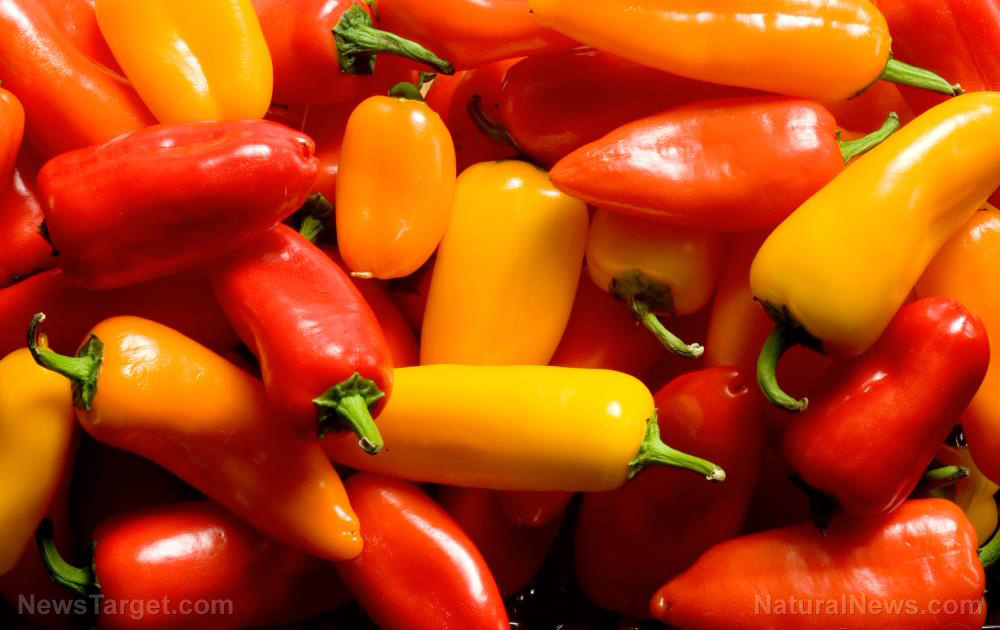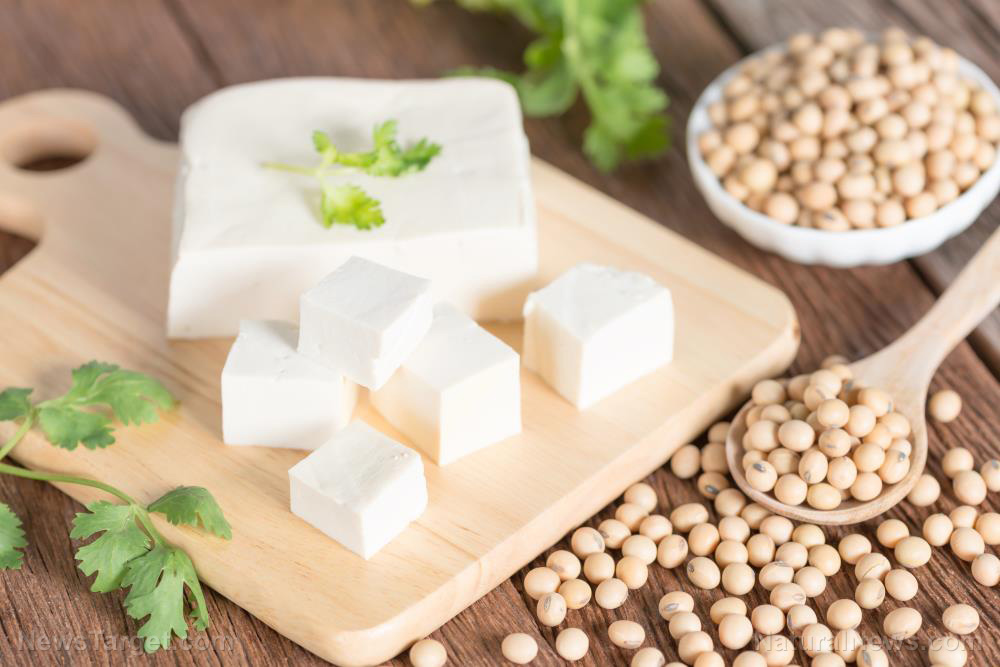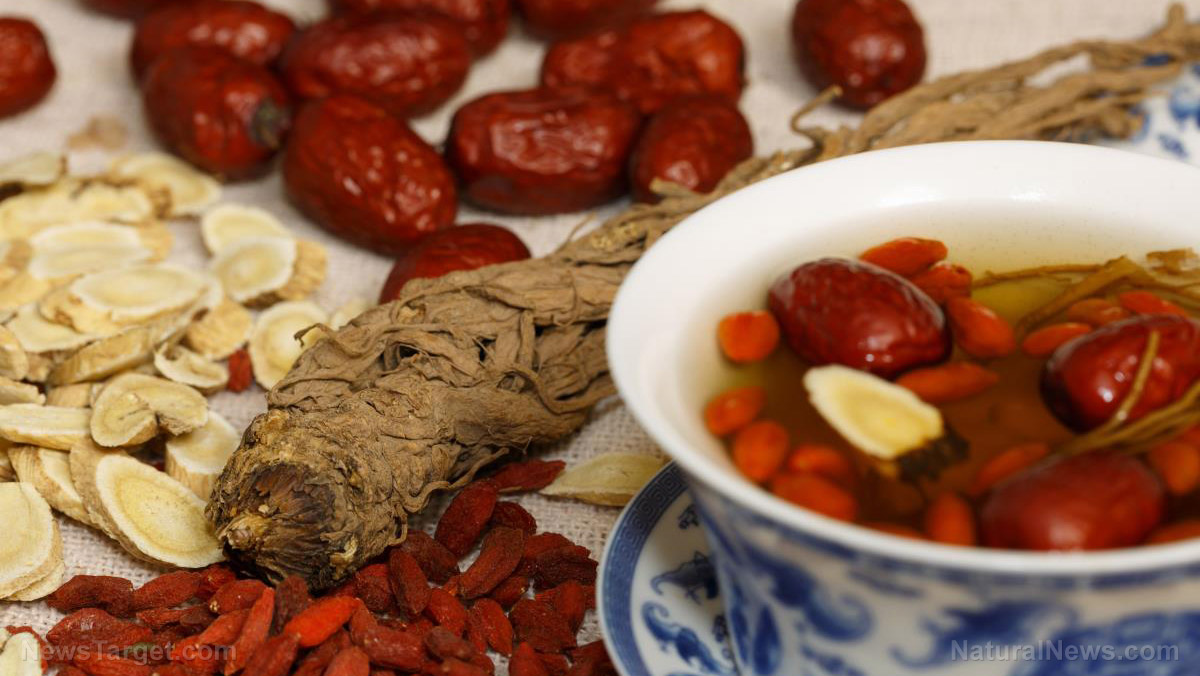Several Chinese medicines prove to be effective in treating vascular diseases
07/19/2019 / By Ralph Flores

Patients suffering from cerebrovascular and cardiovascular diseases should consider traditional Chinese medicine, according to researchers from the Guangzhou University of Chinese Medicine. In their review, which appeared in The American Journal of Chinese Medicine, they indicated that several herbal formulas used in TCM were found to be effective against ischemic cardiovascular and cerebrovascular diseases.
The link between inflammasome and inflammation
For the review, the researchers looked at potential mechanisms for controlling the development of these diseases. They were particularly interested in inflammasomes and how these affect the process of ischemic cerebral- and cardiovascular diseases. Inflammasomes refer to molecular platforms that are activated in response to infection or stress. These can trigger the maturation of pro-inflammatory cytokines like interleukin-1B to cause an immune response.
Earlier studies showed that inflammasomes play a role in inflammatory responses that accelerate disease development and aggravate acute tissue lesions. In one review in Nature Medicine, scientists from the University of North Carolina at Chapel Hill looked at the inflammasome NLRP3 and its role in chronic inflammation and atherosclerosis. The team posited that IL-18, which comes from inflammasome activation, is responsible for the progression of these conditions. Compared to healthy arterial tissues, those with human atherosclerotic plaques have elevated levels of IL-18.
Elevated levels of IL-18 from inflammasome activation not only increases the risk of plaque buildup, but it also causes vascular inflammation.
Herbal medicines to treat cardio- and cerebrovascular events
In the current review, the researchers noted that targeting NLRP3 proved to be effective in preventing – even treating – cerebrovascular and cardiovascular diseases.
Cerebrovascular diseases, to note, refer to those that affect the blood vessels and blood supply to the brain. Some cerebrovascular diseases include stroke, aneurysms, transient ischemic attack, and vascular malformation. In the U.S., the condition is the fifth leading cause of death.
Cardiovascular diseases, on the other hand, are those that affect the heart and the blood vessels. According to the World Health Organization, it is the leading cause of death globally – and in the U.S., CVDs account for at least 25 percent of total deaths every year.
Based on their review, the researchers found that the following active ingredients affect NLRP3 in different modes:
Astragaloside IV, an active component from Astragalus membranaceus (huang qi) is found to reduce NLRP3 levels, alongside other pro-inflammatory proteins tumor necrosis factor-alpha (TNF-a) and interleukin-1beta (IL-1B) in the hippocampus, based on in vivo studies. It also inhibits NLRP3 activation by influencing cell membrane receptors. Other active ingredients – namely, resveratrol, colchicinesis, salvianolic acid B, chrysophanol, and sulforaphane – directly affect NLRP3 formation by inhibiting the adaptor protein ASC or the pro-inflammatory enzyme caspase-1. Resveratrol, in particular, not only inhibits NLRP3 activation, but it also induces autophagy; thereby, preserving mitochondrial integrity. This was also seen in compounds, including sinomenine, ruscogenin, arctigenin, and cepharanthineas.
The researchers also noted that other compounds negatively regulate the downstream products of NLRP3, which include IL-18 and IL-1B. These effects indicate the efficacy of Chinese herbal medicine for treating both cerebrovascular and cardiovascular diseases. (Related: Manage your cholesterol levels naturally with this Chinese herbal pill.)
Learn of other herbal remedies in TCM that treat cardiovascular and cerebrovascular diseases at ChineseMedicine.news.
Sources include:
Tagged Under: alternative medicine, cardiovascular diseases, cerebrovascular diseases, Chinese herbal formula, Chinese herbal medicines, heart health, Herbs, inflammasomes, inflammation, ischemia, natural cures, natural medicine, remedies, TCM, traditional Chinese medicine
RECENT NEWS & ARTICLES
COPYRIGHT © 2017 RESEARCH NEWS



















